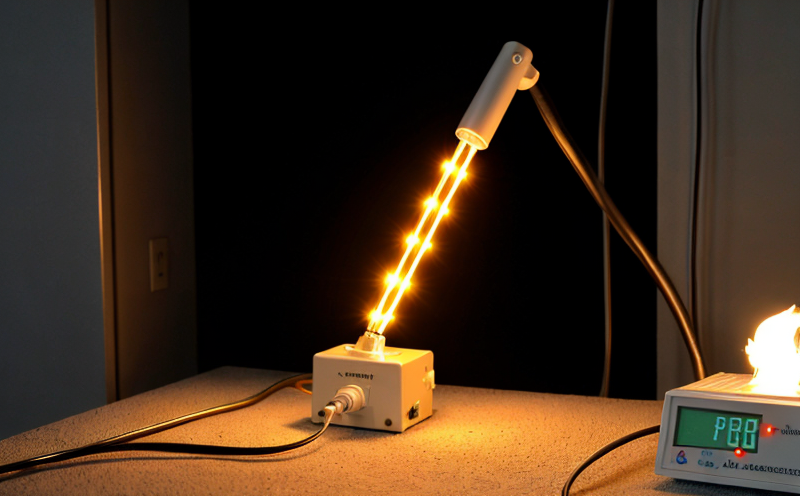Measuring the influence of external factors (voltage fluctuations, temperature) on flicker.
The Crucial Role of Measuring Flicker Understanding External Factors Impact
In todays fast-paced business world, ensuring the reliability and efficiency of electrical systems is crucial for maintaining productivity and preventing costly disruptions. One often-overlooked aspect of electrical system performance is flicker, a phenomenon characterized by periodic fluctuations in brightness that can affect the overall quality of lighting. Measuring the influence of external factors (voltage fluctuations, temperature) on flicker is an essential laboratory service provided by Eurolab, designed to help businesses identify and mitigate potential issues before they become major problems.
The Importance of Flicker Measurement
Flicker can have significant consequences for businesses, including
Energy consumption Excessive flicker can lead to increased energy usage, resulting in higher bills and a larger carbon footprint.
Equipment damage Repeated voltage fluctuations can cause wear and tear on electrical equipment, reducing its lifespan and increasing maintenance costs.
Productivity losses Flicker can be distracting and affect employee well-being, leading to decreased productivity and lower morale.
Regulatory compliance Failure to measure and control flicker can result in non-compliance with industry standards and regulations.
The Advantages of Measuring the Influence of External Factors on Flicker
By partnering with Eurolab for flicker measurement services, businesses can enjoy a range of benefits, including
Key Benefits
Improved energy efficiency By identifying areas where voltage fluctuations are causing excessive flicker, companies can optimize their electrical systems and reduce energy consumption.
Extended equipment lifespan Regular flicker measurements help prevent damage to electrical equipment, reducing maintenance costs and extending the life of assets.
Enhanced productivity By minimizing distractions caused by flicker, businesses can maintain a healthy and productive work environment.
Regulatory compliance Eurolabs expert analysis ensures that clients meet industry standards for flicker measurement and control.
Additional Benefits
Cost savings Reducing energy consumption and equipment damage can result in significant cost savings over time.
Improved employee well-being By minimizing distractions and promoting a healthy work environment, businesses can boost morale and reduce absenteeism.
Competitive advantage Companies that prioritize flicker measurement and control demonstrate their commitment to efficiency, reliability, and regulatory compliance.
QA Section Frequently Asked Questions about Flicker Measurement
Q1 What is flicker, and why is it a concern for businesses?
A1 Flicker refers to periodic fluctuations in brightness that can affect the quality of lighting. Excessive flicker can lead to increased energy consumption, equipment damage, productivity losses, and non-compliance with industry standards.
Q2 How do voltage fluctuations contribute to flicker?
A2 Voltage fluctuations cause electrical systems to function erratically, leading to periodic changes in brightness that manifest as flicker.
Q3 What role does temperature play in flicker measurement?
A3 Temperature affects the performance of electrical equipment and can influence flicker levels. Eurolabs laboratory services take into account temperature-related factors when measuring and analyzing flicker.
Q4 Can I measure flicker using in-house resources or is it best left to a professional laboratory like Eurolab?
A4 While some basic measurement tools are available, accurate and comprehensive flicker analysis requires specialized equipment and expertise. Partnering with a reputable laboratory like Eurolab ensures reliable results and expert interpretation.
Q5 What are the potential consequences of ignoring flicker in electrical systems?
A5 Ignoring flicker can lead to increased energy consumption, equipment damage, productivity losses, and non-compliance with industry standards. Regular measurement and control of flicker are essential for maintaining efficient and reliable electrical systems.
Conclusion
In conclusion, measuring the influence of external factors (voltage fluctuations, temperature) on flicker is a critical aspect of ensuring electrical system reliability and efficiency. By partnering with Eurolab for this laboratory service, businesses can enjoy improved energy efficiency, extended equipment lifespan, enhanced productivity, and regulatory compliance.




